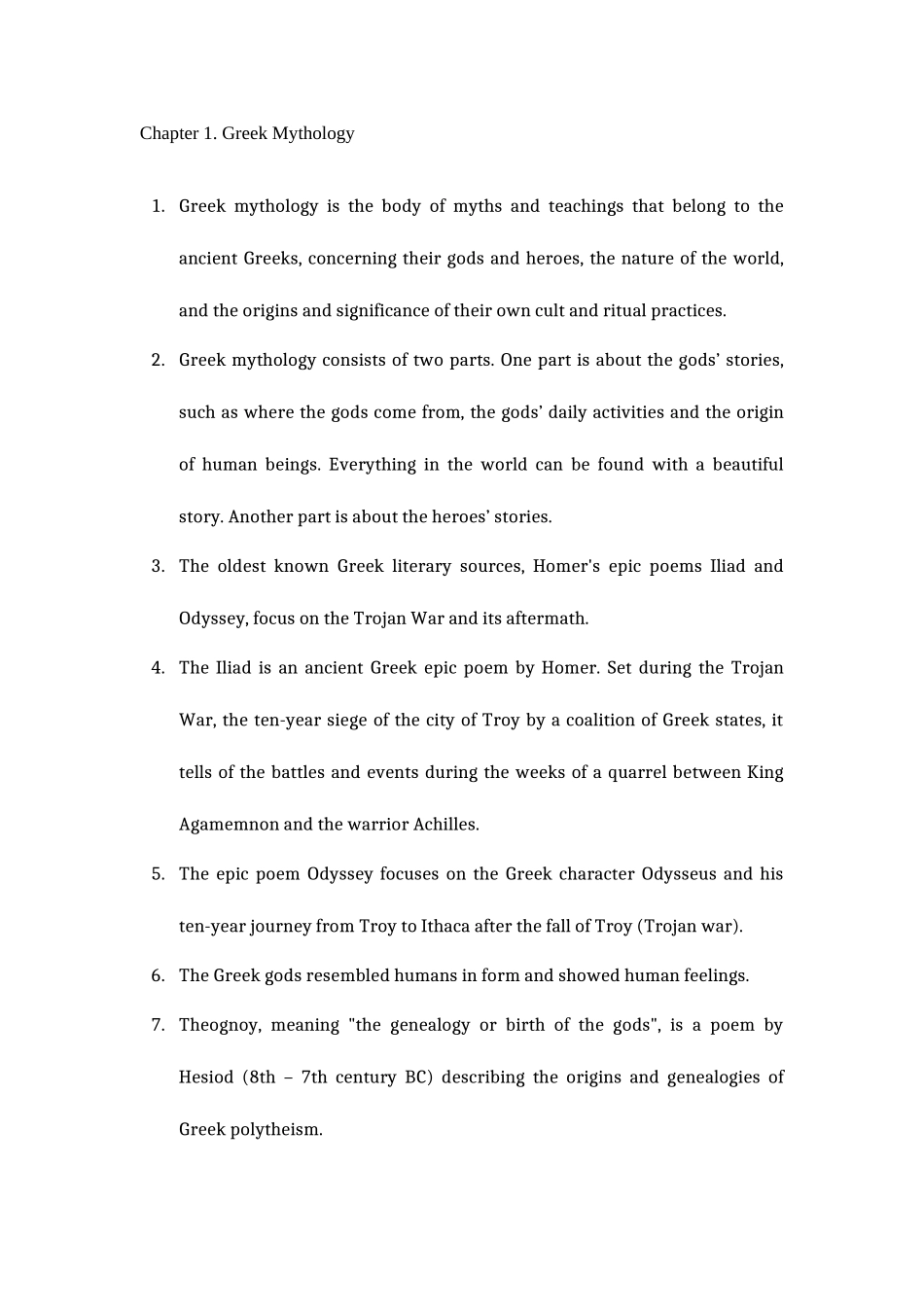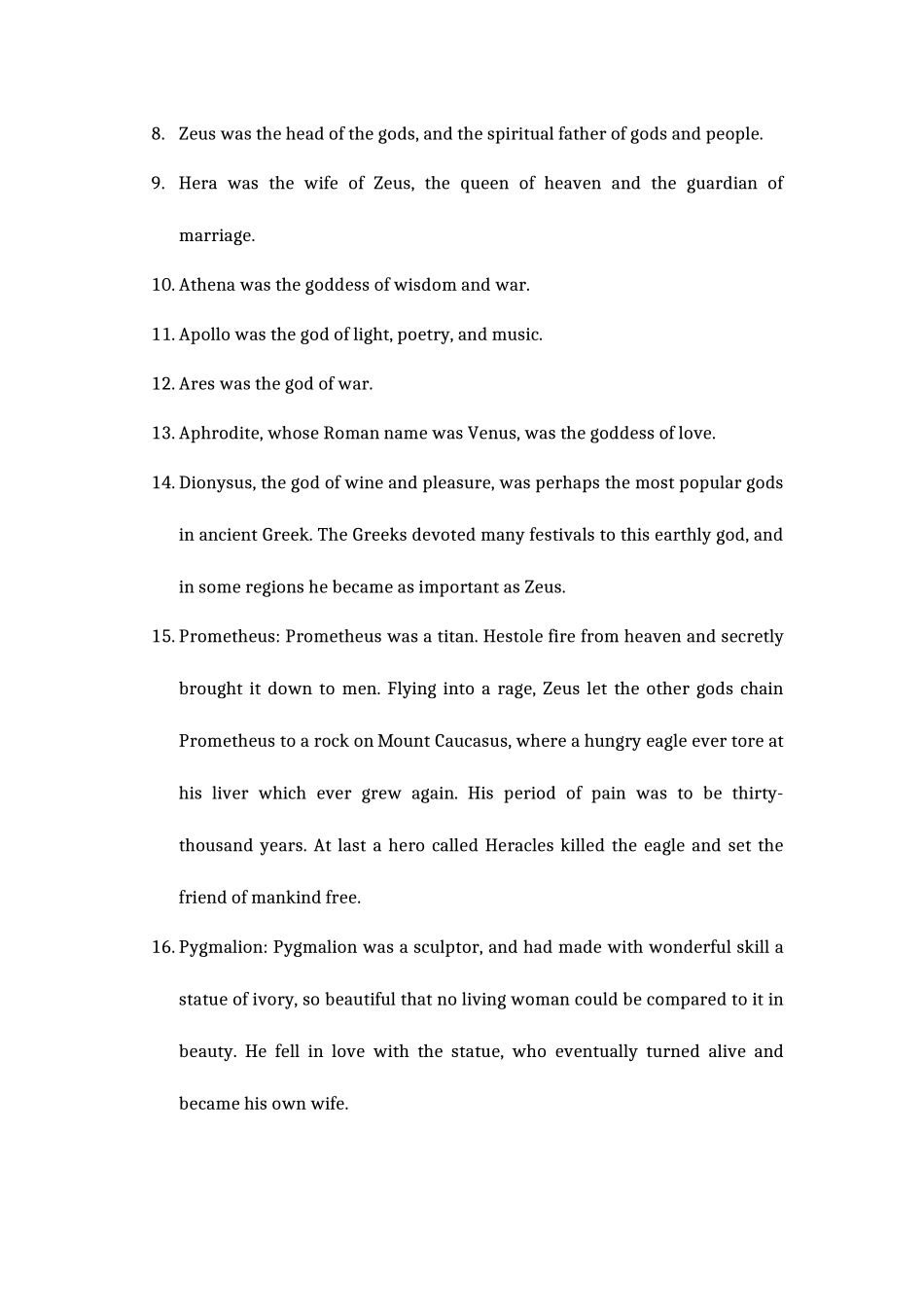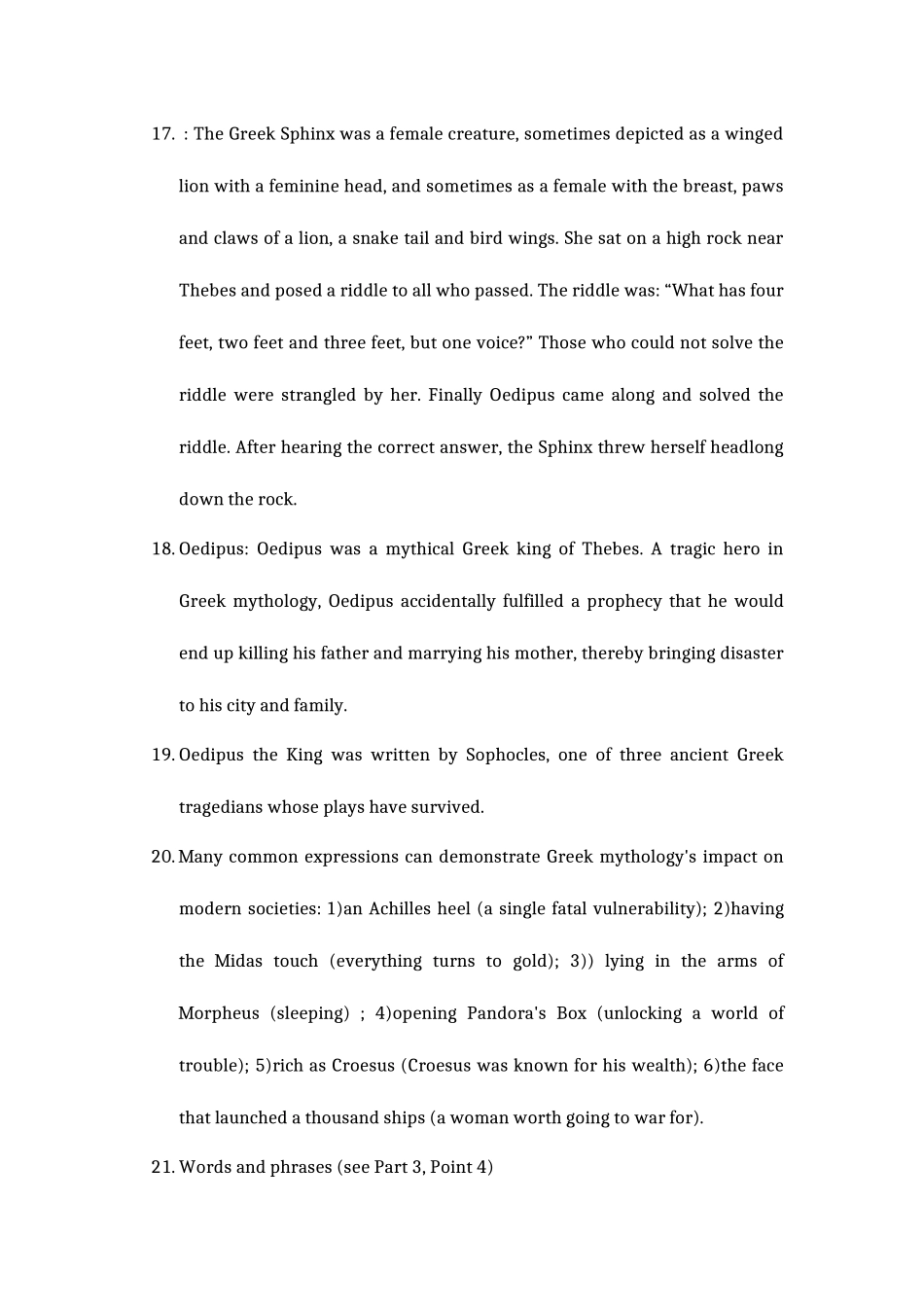Chapter 1. Greek Mythology1. Greek mythology is the body of myths and teachings that belong to the ancient Greeks, concerning their gods and heroes, the nature of the world, and the origins and significance of their own cult and ritual practices.2. Greek mythology consists of two parts. One part is about the gods’ stories, such as where the gods come from, the gods’ daily activities and the origin of human beings. Everything in the world can be found with a beautiful story. Another part is about the heroes’ stories. 3. The oldest known Greek literary sources, Homer's epic poems Iliad and Odyssey, focus on the Trojan War and its aftermath. 4. The Iliad is an ancient Greek epic poem by Homer. Set during the Trojan War, the ten-year siege of the city of Troy by a coalition of Greek states, it tells of the battles and events during the weeks of a quarrel between King Agamemnon and the warrior Achilles.5. The epic poem Odyssey focuses on the Greek character Odysseus and his ten-year journey from Troy to Ithaca after the fall of Troy (Trojan war).6. The Greek gods resembled humans in form and showed human feelings. 7. Theognoy, meaning "the genealogy or birth of the gods", is a poem by Hesiod (8th – 7th century BC) describing the origins and genealogies of Greek polytheism. 8. Zeus was the head of the gods, and the spiritual father of gods and people.9. Hera was the wife of Zeus, the queen of heaven and the guardian of marriage. 10. Athena was the goddess of wisdom and war.11. Apollo was the god of light, poetry, and music.12. Ares was the god of war.13. Aphrodite, whose Roman name was Venus, was the goddess of love. 14. Dionysus, the god of wine and pleasure, was perhaps...


